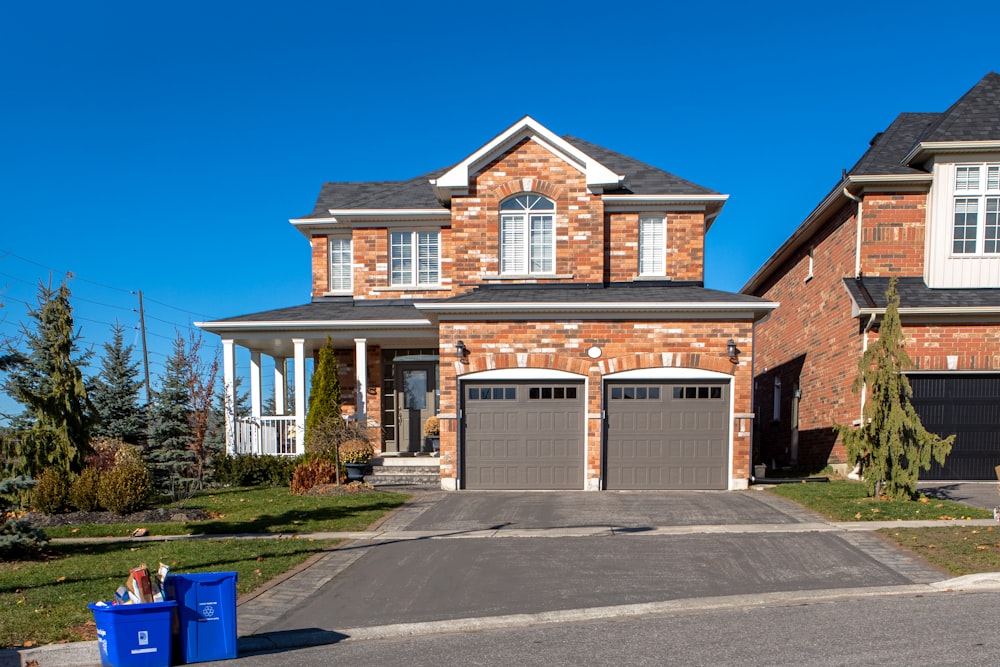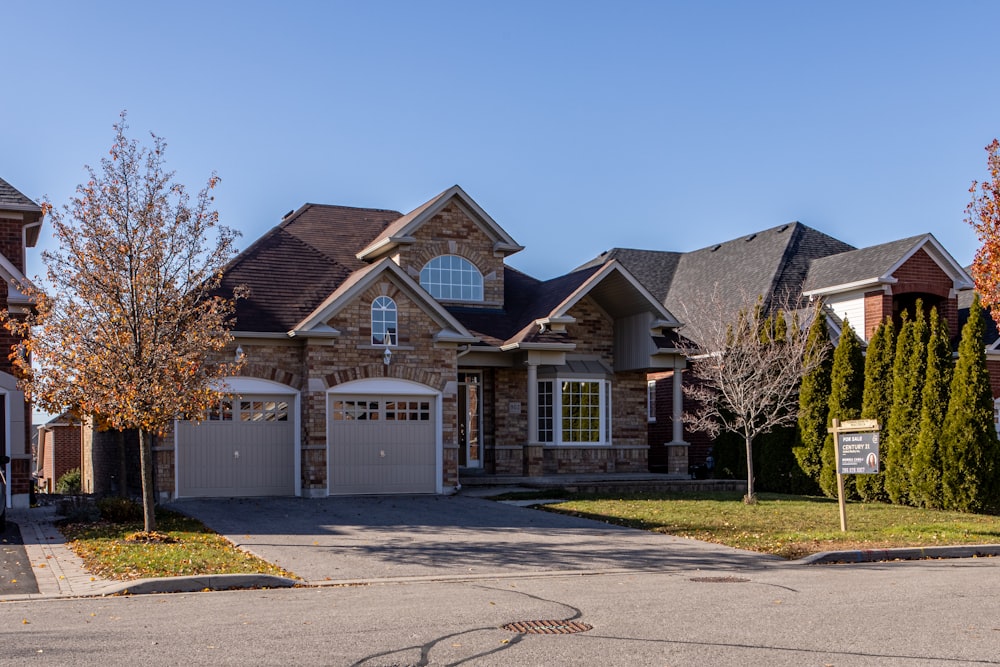Table of Contents
- Introduction
- The Importance of Driveway Replacement
- Financing Options for Driveway Replacement
- The Link between Driveways and Vehicles
- Driveway Financing Vs. Auto Loans for Driveway-Related Expenses
- Driveway Finance Application: Steps to Apply
- Conclusion: Making the Most of Driveway Financing
Key Takeaways
- Driveway replacement is crucial for maintaining your home's value and curb appeal.
- Financing options like home improvement loans, home equity loans, and personal loans are available for driveway replacement.
- A quality driveway not only benefits your home but also protects your vehicles from damage.
- Driveway financing can be a more cost-effective and strategic solution compared to auto loans for driveway-related expenses.
- Applying for driveway financing involves assessing your needs, checking your credit score, researching lenders, preparing documents, and waiting for approval.
- Driveway financing can be a valuable tool in home improvement, but it's important to understand the terms and conditions and choose the best option for your situation.
I. Introduction
Driveway financing is a specialized form of financial assistance that caters specifically to homeowners looking to build, repair, or upgrade their driveways. With this type of financing, homeowners can easily fund their driveway projects through manageable installments rather than a sizeable one-time payment.
This solution offers the flexibility of spreading the cost over a period of time, making it less burdensome on the homeowner's budget. Moreover, driveway financing can cover a wide range of projects, from installing a new concrete, asphalt or interlocking driveway, to replacing or repairing an existing one. The key advantage of this form of financing is that it enables homeowners to enhance the aesthetics and functionality of their homes without straining their finances.

II. The Importance of Driveway Financing for Homeowners
Driveway financing is an investment that homeowners should consider for several compelling reasons. First, a well-constructed and maintained driveway significantly enhances the curb appeal of a property. This not only gives homeowners a sense of pride in their home's appearance, but it also makes a powerful first impression on visitors and potential buyers.
Second, driveway improvements can increase the market value of a property. According to real estate experts, exterior improvements like a new or upgraded driveway can yield a high return on investment when it comes time to sell. This makes driveway financing a strategic move for homeowners who might consider selling their property in the future.
Moreover, driveway financing enables homeowners to address any urgent repairs or replacements without delay. Cracks, potholes, and other forms of damage can pose safety risks and lead to more costly issues if not promptly addressed. Through driveway financing, homeowners can swiftly initiate necessary repairs, ensuring their driveway remains safe and functional while also preserving the overall integrity of their property.
In essence, driveway financing serves as a valuable tool for homeowners, providing them with a financially feasible way to enhance their property's aesthetic appeal, increase its market value, and maintain its overall safety and functionality.
III. Driveway Financing Near You: Finding the Right Lender
Finding the right lender for your driveway financing can feel like a daunting task, but with careful research, it becomes much easier. Your first step should be to look for lenders in your local area. This can be done through a simple online search, using phrases like "driveway financing near me" or "home renovation financing in [your city]." Local lenders might have a better understanding of your specific situation, the local market, and the cost of driveway projects in your area.
When choosing a lender, there are several factors to consider. First, compare interest rates. The interest rate on the loan will significantly impact the total cost of your project, so it's crucial to find a lender who offers competitive rates. You should also take into account the loan term, which is the length of time you'll have to pay back the loan. A longer term might mean smaller monthly payments, but it could also mean paying more in interest over time.

Another important factor is the lender's reputation. Look for reviews or testimonials from previous customers to get an idea of their experiences. A lender with a history of satisfied customers is a good sign of reliability and quality service. You should also check if the lender is registered and licensed to operate in your area.
IV. Concrete Driveway Financing Near You
Concrete driveways are a popular choice among homeowners due to their durability, low maintenance, and aesthetic appeal. However, the cost of installing a concrete driveway can be quite high, making financing a beneficial option.
When considering concrete driveway financing, you should first get an estimate of the total cost. The cost can vary depending on the size of your driveway, the complexity of the project, and the rates of local contractors. Once you have an estimate, you can start looking for lenders who offer concrete driveway financing.
The benefits of a concrete driveway go beyond aesthetics. Concrete is known for its durability and can last for many years with minimal maintenance. It can withstand harsh weather conditions and heavy loads, making it a cost-effective choice in the long run.
When considering lenders for concrete driveway financing, take into account the same factors as you would for any other type of driveway financing: interest rates, loan terms, and lender reputation. It's also worth considering lenders who specialize in home improvement financing, as they might have better understanding of your needs and can provide tailored solutions.
V. Financing Driveway Paving: What You Need to Know
Driveway paving is a significant investment, and understanding the associated costs can help you plan your budget effectively. The cost of driveway paving can vary widely depending on several factors. These include the size and shape of your driveway, the type of materials used (asphalt, concrete, brick, etc.), and the rates of local paving contractors.
Asphalt paving tends to be less expensive than concrete or brick, but each material has its own advantages in terms of durability, maintenance, and aesthetic appeal. It's also important to consider the cost of site preparation, which may involve grading or excavation, and the potential cost of sealing or other maintenance down the line.

Financing options for driveway paving are plentiful. Many lenders offer home improvement loans specifically designed for projects like driveway paving. These loans can be unsecured, meaning they don't require collateral, but they may come with higher interest rates than secured loans. Alternatively, a home equity loan or line of credit can offer lower interest rates, but your home serves as collateral. For smaller projects, a credit card could be a viable option.
VI. Driveway Payment Plan: Breaking Down the Costs
A driveway payment plan is essentially a loan agreement between you and the lender. It allows you to spread the cost of your driveway project over a set period of time, making the project more financially manageable.
The specifics of a payment plan can vary depending on the lender and your creditworthiness. Typically, you'll make monthly payments towards the cost of your project, plus interest. The interest rate and the duration of the loan term will determine how much you pay each month.
Before agreeing to a payment plan, it's essential to understand all the costs involved. This includes the principal amount, which is the cost of your driveway project, the interest rate, and any additional fees or charges. Be sure to ask your lender for a breakdown of these costs and make sure you understand the terms of the agreement.
Remember that while a payment plan can make a large project more affordable in the short term, you will end up paying more overall due to the interest. Therefore, it's important to consider all your financing options and choose the one that best fits your budget and financial goals.
VII. Driveway Replacement Financing: Renew Your Home's Look
A well-maintained driveway is more than just a path to your garage — it's a key component of your home's curb appeal and overall value. Over time, driveways can become worn and damaged due to weather, usage, and age. Cracks, potholes, and other forms of disrepair not only detract from your home's appearance but can also cause safety hazards and damage to your vehicles. This is where driveway replacement comes in.
Driveway replacement involves removing the old, damaged driveway and installing a new one. It's a significant investment, but fortunately, driveway replacement financing options are available to make the project more affordable. Home improvement loans, home equity loans or lines of credit, and personal loans are all viable options. Each has its own advantages and disadvantages in terms of interest rates, loan terms, and qualification requirements.
By financing your driveway replacement, you can spread the cost over a period of time rather than bearing a significant one-time expense. This allows you to renew your home's look, increase its value, and ensure a safe and smooth surface for your vehicles without straining your finances.
VIII. Driveway Finance Auto Loan: The Link between Driveways and Your Vehicle
A high-quality driveway is not just beneficial for your home, but also for your vehicles. A smooth and well-maintained driveway provides a safe and secure place for your car, reducing the risk of damage caused by potholes or rough surfaces.
In some cases, homeowners may consider taking out an auto loan to cover driveway-related expenses, such as repairs caused by a damaged driveway. However, driveway financing can be a more strategic and cost-effective solution. Instead of treating the symptoms (vehicle damage), driveway financing allows you to address the root cause (a damaged driveway) and prevent further vehicle damage in the future.
Driveway financing, unlike auto loans, is specifically designed for home improvement projects and often comes with lower interest rates, especially if you have a good credit score. Plus, by improving your driveway, you're not only protecting your vehicle but also adding value to your home. This is a double win that an auto loan used for repairs cannot provide.

It's also worth noting that driveway financing provides more flexibility. While auto loans are strictly used for auto-related expenses, driveway financing can be used for any home improvement project, including but not limited to driveway replacement or repair. This allows you to improve other aspects of your home as needed, further increasing its value.
In summary, while auto loans have their place, driveway financing offers a more comprehensive solution for homeowners looking to improve their property and protect their vehicles. By choosing driveway financing, you're investing in the long-term value of your home and the longevity of your vehicle.
IX. Driveway Finance Application: Steps to Apply
Applying for driveway financing is a process that involves several steps:
- Assess Your Needs: Before applying, determine the extent of your driveway project. This will help you estimate the potential cost and decide how much financing you'll need.
- Check Your Credit Score: Your credit score will significantly impact your ability to secure financing and the interest rates you're offered. Make sure your score is in good standing and correct any errors on your credit report.
- Research Lenders: Different lenders offer various terms and conditions. Research your options and choose a lender that offers favorable terms that suit your financial situation.
- Prepare Your Documents: Most lenders will require proof of income, employment, and identity. Have these documents ready to speed up the application process.
- Apply: Once you've chosen a lender, you can often apply online or in-person. Fill out the application form with accurate information.
- Wait for Approval: The lender will review your application and make a decision. This can take anywhere from a few hours to a few days.
Remember, it's important to read the fine print and understand the terms and conditions of your loan. Don't hesitate to ask questions if anything is unclear.
X. Conclusion: Making the Most of Driveway Financing
Driveway financing is an excellent tool for homeowners looking to improve their property's value and appeal. It allows you to tackle significant projects like driveway replacement or repair without a substantial upfront cost. By spreading the expense over a period of time, driveway financing makes these projects more financially manageable.
However, as with any financial decision, it's crucial to consider your options carefully and choose the one that best suits your needs and circumstances. Make sure to understand the terms and conditions thoroughly and consider seeking advice from financial professionals if needed. With careful planning and wise decisions, driveway financing can be a valuable asset in your home improvement toolkit.penses, driveway financing can be used for any home improvement project, including but not limited to driveway replacement or repair. This allows you to improve other aspects of your home as needed, further increasing its value.
In summary, while auto loans have their place, driveway financing offers a more comprehensive solution for homeowners looking to improve their property and protect their vehicles. By choosing driveway financing, you're investing in the long-term value of your home and the longevity of your vehicle.


